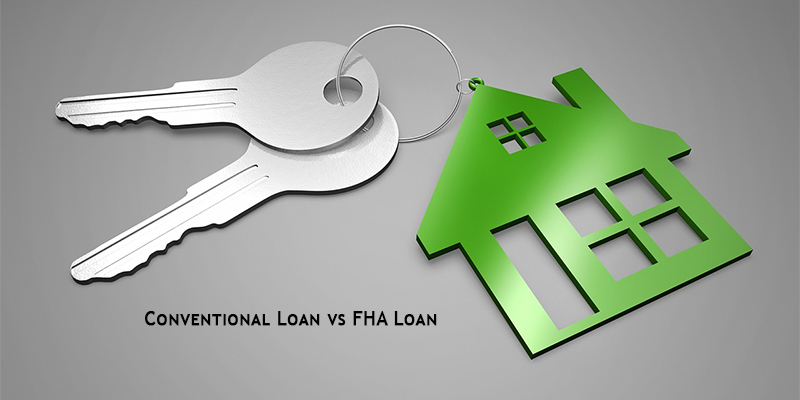Ever wondered about Conventional Loan vs FHA Loan, which is best for you? If yes, then you’ve landed on the right page to address such an important question. Here we’ll go over what conventional loans and FHA loans are, highlighting their differences along the way.

Hopefully, by the end of this article, you’ll come to a better understanding of what each loan type stands to offer and what loan option best suits your needs and budget. Let’s address what conventional loans vs FHA loans are.
A conventional loan is any type of loan for potential home buyers, that is not secured or offered by a government entity. FHA loans are loans for potential home buyers, secured by the federal government via the Federal house administration.
Conventional Loan vs FHA Loan, Meaning
As you may tell, one apparent difference between both is that conventional loans are not insured by the federal government while FHA loans are. But there are more differences to both loan types, and these differences are what would help you to make a better decision on which is best for you.
Conventional loans are good for borrowers with a high credit score, while FHA loans grant borrowers who are low on credit scores a chance to become homeowners. But like we’ve mentioned earlier, these two have more major differences to them. These major differences are the top decisive factors to consider when deciding between a conventional loan or FHA loan: which is best for you.
Conventional Loan vs FHA Loan, Differences
We’ve got 6 top factors to look into and they are.
- Credit Scores: When it comes to conventional loans vs FHA loans, your credit score is vital. That’s because there is a minimum limit for both conventional loans and FHA loans and they are very much different.
Conventional loans allow a minimum credit loan score of 620. Fha loans on the other hand permit credit scores as low as 500. So if you have a credit score within the range of 500 – 620, then you’re only eligible for FHA loans. For this situation, FHA loans would be the best option to go for. - Down payments: Conventional loans accept down payments as low as 3%, while Fha loans accept down payments within the range of 3.5 – 10 % depending on your credit score. Depending on your needs, you can decide on the factor of down payments, which best suits your budget.
- Debt to income ratio: The debt to income ratio is another vital factor for determining your eligibility for either a conventional loan or an FHA loan. Conventional loans accept debt to income ratio of 43%. As for FHA loans, you become eligible for a debt-to-income ratio as high as 50%.
- Mortgage insurance: Both conventional loans and FHA loans charge mortgage insurance but quite differently. The mortgage insurance for FHA loans are set at 0.85% for all borrowers. For conventional loans, mortgage insurance tends to vary depending on your credit score.
- Mortgage payments: Fha loans cost the same mortgage payments no matter your credit score. Unlike FHA loans, conventional loans cause a drop in your monthly mortgage payments and PMI (private mortgage insurance) costs as your credit score rating increases.
- Loan limits: Both of these loans have an amount limit you can borrow. Fha loans have a limit set within the range of $356,362 – $822,325 depending on the county, market areas. The conventional loan limit is set at $548,250. The loan limits may also be varied annually by their regulators.
We’ve touched on several decisive factors when it comes to finding the best loan for a home to call yours. We hope that through this article you can better be guided in your decision-making. You can do more research on Google.



